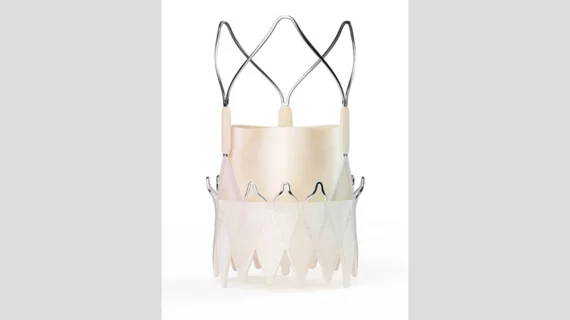Boston Scientific's new TAVR system associated with high success rate, low mortality rate
A new transcatheter aortic valve replacement (TAVR) system from Boston Scientific is associated with a high success rate and low mortality rate, according to new data published in EuroIntervention.[1] The findings were also presented at the PCR London Valves 2022 conference.
The Acurate neo2 Aortic Valve System was built with severely narrow aortic valves in mind. Its annular sealing technology was designed to limit both paravalvular leak (PVL) and paravalvular regurgitation. In addition, Boston Scientific has said the next-generation TAVR valve was designed to be indicated for more patients than previous models, and its delivery system was simplified as well.
The device gained CE mark approval in Europe in 2020, but it has not been approved yet in the United States.
This latest analysis focused on 250 patients who presented with severe aortic stenosis at one of 18 different facilities in Europe. Patients will be followed for a total of five years, but these initial findings focused on data from the first 30 days following implantation.
Overall, the device was linked to a procedural success rate of 98.4% and all-cause 30-day mortality rate of 0.8%. There were no cases of disabling stroke or acute kidney injury.
PVL was moderate in 1.9% of patients and mild in 18.9% of patients, and no patients experienced PVL more severe than moderate. Also, hypo-attenuating leaflet thickening was seen in 24.5% of patients.
“The data suggest that the annular sealing technology minimizes leakage around the valve—providing greater improvement in PVL than observed with the prior-generation Acurate neo valve—all while maintaining single-digit permanent pacemaker rates, which contributes to better long-term patient outcomes,” co-principal investigator Lars Søndergaard, MD, MSc, a cardiologist with Rigshospitalet in Denmark, said in a prepared statement.
“We look forward to reviewing longer-term results from this trial and bringing this differentiated TAVR technology to more patients and their physicians,” added Ian Meredith, AM, Boston Scientific’s global chief medical officer.
Additional coverage related to the PCR London Valves 2022 conference is available here and here.

